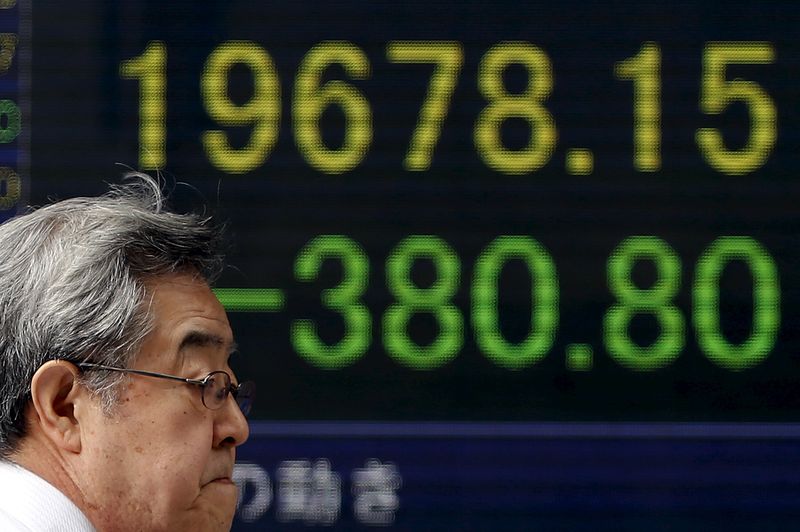By Gina Lee
Investing.com – Asia Pacific stocks were down Friday morning as concerns continue to mount about the spread of COVID-19 variants.
China’s Shanghai Composite inched down 0.05% by 10:14 PM ET (2:14 AM GMT) and the Shenzhen Component fell 1.14%. Data released earlier in the day said that the consumer price index (CPI) grew a smaller-than-expected 1.1% year-on-year in June, while contracting a bigger-than-expected 0.4% month-on-month.
The producer price index (PPI) grew 8.8% year-on-year, slightly down from the 9% growth seen in May.
Hong Kong’s Hang Seng Index was down 0.28%.
Japan’s Nikkei 225 fell 1.83%. Rising numbers of COVID-19 cases prompted the government to declare a fresh state of emergency in Tokyo, less than three weeks before the Tokyo Olympic Games are due to open.
The KOSPI slid 1.90% as a record number of COVID-19 cases also prompted neighboring South Korea to move social distancing rules to the top level of 4 for Seoul. The measures will take effect on Jul. 12 and are set to last for two weeks.
In Australia, the ASX 200 fell 1.24%.
U.S. government bonds mostly held their advance within the past week. However, the 30-year Treasury yield dropped below 1.90% for the first time since February 2021 during the previous session.
Inflation expectations slid further and investors digested the Chinese data.
“Reflation requires not only the continual increase in growth, there is a fiscal component to it and we’re seeing how hard it is to get some of that fiscal impulse to carry through,” State Street Corp (NYSE:STT). global macro strategist Marvin Loh told Bloomberg.
“Monetary policy continues to drive a lot of the excess growth, and we know what that story looks like, which is lower yields,” he added.
Stimulus measures from central banks remain on investors’ radar over growing concerns that the global economic recovery from COVID-19 is slowing down. While the U.S. Federal Reserve’s minutes from its June policy meeting, released earlier in the week, said it is taking steps to prepare for asset tapering, its European counterpart seems to be taking the opposite approach.
The European Central Bank (ECB) released the results of an 18-month review on Thursday, in which the central bank raised its inflation target to 2% and said moderate overshoots would be tolerated. Group of 20, or G20, finance ministers and central bankers will meet in Venice later in the day.
Investors also remain focused on China, after the State Council earlier in the week that the People's Bank of China could cut its reserve requirement ratio for banks in an unexpected U-turn. In addition to weaker-than-expected data released earlier in the month, there are signs that the economic recovery in the world’s second-largest economy is also slowing down.
On the COVID-19 front, Pfizer Inc. (NYSE:PFE) will request FDA emergency use authorization for a third booster dose of its COVID-19 vaccine co-developed with BioNTech SE (F:22UAy). The companies are confident that the booster shot will offer protection against the Delta variant of the virus.
